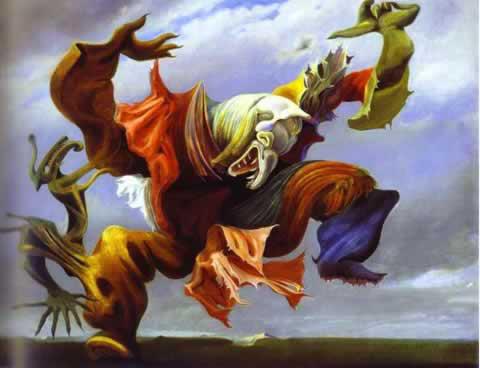From An Outline of Intellectual Rubbish by -- Bertrand Russell
If an opinion contrary to your own makes you angry, that is a sign that you are subconsciously aware of having no good reason for thinking as you do. If some one maintains that two and two are five, or that Iceland is on the equator, you feel pity rather than anger, unless you know so little of arithmetic or geography that his opinion shakes your own contrary conviction. The most savage controversies are those about matters as to which there is no good evidence either way. Persecution is used in theology, not in arithmetic, because in arithmetic there is knowledge, but in theology there is only opinion. So whenever you find yourself getting angry about a difference of opinion, be on your guard; you will probably find, on examination, that your belief is going beyond what the evidence warrants.
-- Bertrand Russell, "An Outline of Intellectual Rubbish," 1943

AN OUTLINE OF INTELLECTUAL RUBBISH
by Bertrand Russell
"Man is a rational animal-so at least I have been told. Throughout a long life, I have looked diligently for evidence in favor of this statement, but so far I have not had the good fortune to come across it, though I have searched in many countries spread over three continents. On the contrary, I have seen the world plunging continually further into madness. I have seen great nations, formerly leaders of civilization, led astray by preachers of bombastic nonsense. I have seen cruelty, persecution, and superstition increasing by leaps and bounds, until we have almost reached the point where praise of rationality is held to mark a man as an old fogey regrettably surviving from a bygone age. All this is depressing, but gloom is a useless emotion. In order to escape from it, I have been driven to study the past with more attention than I had formerly given to it, and have found, as Erasmus found, that folly is perennial and yet the human race has survived. The follies of our own times are easier to bear when they are seen against the background of past follies. In what follows I shall mix the sillinesses of our day with those of former centuries. Perhaps the result may help in seeing our own times in perspective, and as not much worse than other ages that our ancestors lived through without ultimate disaster.

Aristotle, so far as I know, was the first man to proclaim explicitly that man is a rational animal. His reason for this view was one which does not now seem very impressive; it was, that some people can do sums. He thought that there are three kinds of soul: the vegetable soul, possessed by all living things, both plants and animals, and concerned only with nourishment and growth; the animal soul, concerned with locomotion, and shared by man with the lower animals; and finally the rational soul, or intellect, which is the Divine mind, but in which men participate to a greater or less degree in proportion to their wisdom. It is in virtue of the intellect that man is a rational animal. The intellect is shown in various ways, but most emphatically by mastery of arithmetic. The Greek system of numerals was very bad, so that the multiplication table was quite difficult, and complicated calculations could only be made by very clever people. Now-a-days, however, calculating machines do sums better than even the cleverest people, yet no one contends that these useful instruments are immortal, or work by divine inspiration. As arithmetic has grown easier, it has come to be less respected. The consequence is that, though many philosophers continue to tell us what fine fellows we are, it is no longer on account of our arithmetical skill that they praise us.

Since the fashion of the age no longer allows us to point to calculating boys as evidence that man is rational and the soul, at least in part, immortal, let us look elsewhere. Where shall we look first? Shall we look among eminent statesmen, who have so triumphantly guided the world into its present condition? Or shall we choose the men of letters? Or the philosophers? All these have their claims, but 1 think we should begin with those whom all right thinking people acknowledge to be the wisest as well as the best of men, namely the clergy. If they fail to be rational, what hope is there for us lesser mortals? And alas-though I say it with all due respect-there have been times when their wisdom has not been very obvious, and, strange to say, these were especially the times when the power of the clergy was greatest."
